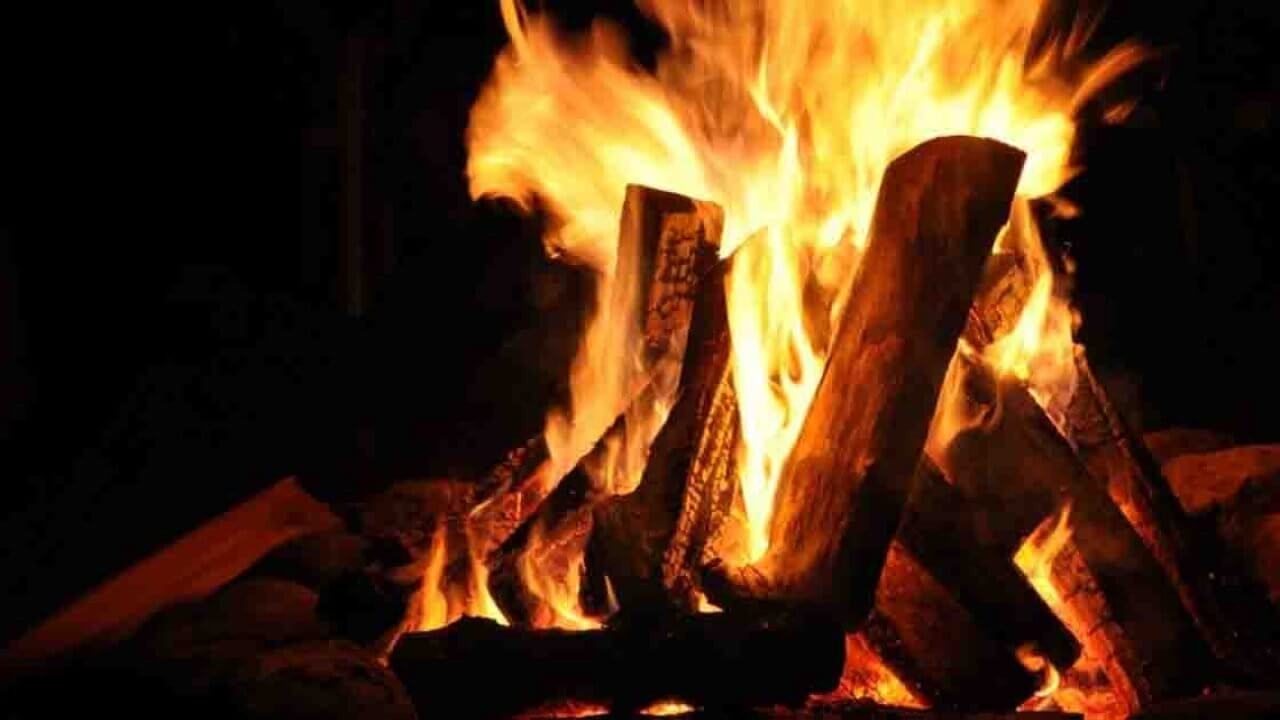NEW DELHI: Celebrated on January 13 every year, Lohri, also called ‘Maghi’, is a popular winter folk festival in which people gear up to lit bonfire, whirl around it singing folk songs, and popping sesame seeds, popcorn, and rewaris.
The harvest festival of India, Lohri, holds a special significance among farmers, as they thank the almighty for a bountiful harvest of crops and forth on the occasion. It is also believed that the festival marks the passing of the winter solstice.
Before the arrival of Lohri, markets get filled with aromatic traditional winter delicacies like gajak, peanuts, and popcorns. The vibe turns completely joyous when everybody dances to the beats of dhol, and dives into the scrumptious feast served.
While due to the COVID-19 surge, the festivities will not be observed on a grand scale, people will complete the rituals by celebrating with private bonfire parties at their homes. Bonfire is undoubtedly the major part of celebrating Lohri that arrives in the chilling January winter month, but have you ever had an uncomfortable experience of getting smoke blown into your eyes? We have all had!
This is not only hazardous to our health but also to the environment. The process of lighting a fire has science involved in it, and to understand the many ways to build a smokeless fire, one has to break down the elements of a fire.
Fret not, as we have got you covered. Here are a few tips for a chemically sustainable, healthy and smokeless bonfire this Lohri.
1. Avoid carbon fuel
Smoke from fire forms when there isn’t enough oxygen to burn the fuel. When we use paper or wood as fuel, smoke occurs because these materials also contain water, carbon, ash, and other organic compounds. The solution is to use better fuel, that’s not wet or contains only carbon. Examples include charcoal or dry wood.
2. Avoid adding too much fuel
Smokeless fires take less time to get going and they burn longer. Do not keep adding fuel to the fire as it will elongate the process of lighting the fire.
3. Don’t burn debris or water-intensive elements
Avoid throwing too much gajak, popcorns and groundnuts to your fire while whirling around it. These are some of the water-intensive elements that could trigger smoke to the bonfire (only if added too much).
4. Ethanol firepit
If you are a person looking out for more environment-friendly smokeless fire options, then an ethanol fire pit is the best choice you could opt for. Ethanol is an environmentally friendly biofuel. It doesn’t produce an irritating odour like some other chemical products to burn fire.
5. Allow airflow
Anthracite hard coal and coke (about 90 per cent carbon) are also the type of fuels that can be used for smokeless fires. While building a fire pit, make sure to leave the front of the fire open to allow the oxygen to get into the fire circle. Use dry grass as the base and light it. Add smaller pieces of dry wood or smokeless fuel of your choice.
Indeed, there is nothing like relaxing in front of an outdoor fire pit. Whether you are celebrating Lohri or want to enjoy a peaceful evening in this chilling winter weather, a bonfire is guaranteed to enhance your experience.
So, try your hands on these useful smokeless fire tips and minimise the amount of smoke hindering your mesmerising ambience. (ANI)






